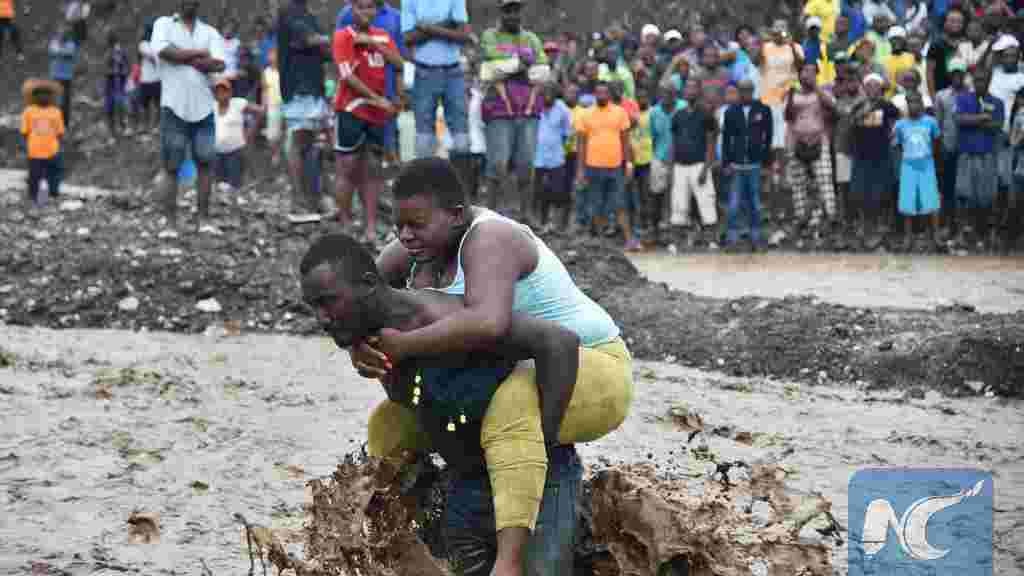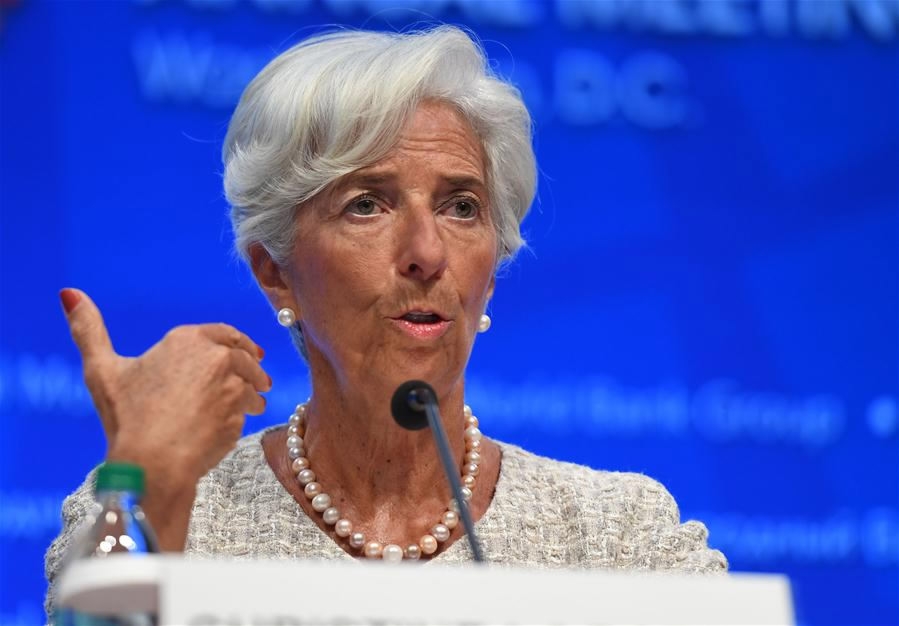
Caribbean
16:02, 24-Nov-2017
World responds to debt-ridden Caribbean hurricane appeal
Bertram Niles

Days before the official end of the hurricane season, Caribbean nations buffeted by a series of catastrophic storms have received a welcome fillip with donors pledging over two billion US dollars in recovery support.
The pledges were made at a conference hosted by the United Nations in New York.
Analysts said the conference as well as a trip to the region earlier in the month by IMF managing director Christine Lagarde suggested that the international community was becoming more alert to the special needs of the group of small island developing states.
The Caribbean has been weighed down by high debt and low growth and the deaths and devastation caused by Hurricanes Irma and Maria in September have made the outlook worse.
"The Caribbean region has slowly but surely become one of the most indebted in the world, with liabilities often far beyond what is safe for such small, open and undiversified economies," The Financial Times said last year in a report headlined "The Caribbean’s 'Silent Debt Crisis."

/Photo via nationaldebtrelief.com
/Photo via nationaldebtrelief.com
It is also one of the areas in the world most susceptible to natural disasters, not only to hurricanes during the annual season which runs from the start of June to the end of November, but to floods and earthquakes, as evidenced by the devastation in Haiti in 2010.
The spiraling indebtedness prompted calls for debt relief as part of any post-hurricane relief package. Of the amount pledged at the UN, more than one billion dollars was for loans and debt relief.
"Countries in the Caribbean need support now to rebuild and to take effective climate action," UN Secretary-General Antonio Guterres told the conference which was attended by former American president Bill Clinton. "We need a new generation of infrastructure that is risk-informed, to underpin resilient economies, communities and livelihoods."
International Monetary Fund chief Christine Lagarde, who addressed a high-level forum in Jamaica on "Unleashing Growth and Strengthening Resilience in the Caribbean," "pledged to convene a conference with major public and private stakeholders to explore options for building resilience in the Caribbean through risk mitigation and debt management strategies."
In a newly published book with the same title as the Jamaica conference, IMF economists note that the debt has been built up over the years through large fiscal deficits, the costs associated with natural disasters, public enterprise borrowing, and off-balance-sheet spending, including for financial sector bailouts.
At the end of 2016, four countries in the region (Jamaica, Barbados, Antigua and Barbuda, Belize) had debt-to-GDP levels close to, or even above, 100 percent of GDP.

Christine Lagarde. /Xinhua photo
Christine Lagarde. /Xinhua photo
Only two of the 14 independent Caribbean Community (Caricom) countries ended the year with ratios under 60 per cent – mentioned often as a prudential limit. The two, Guyana and Haiti, are the region's poorest and benefited from debt forgiveness under the IMF-World Bank Heavily Indebted Poor Countries (HIPC) Initiative.
In recent years, some in Caricom have sought low-cost loans and grants from China, which pledged 30 million dollars at the UN conference, according to a release from the group's secretariat.
One of the obstacles for the Caribbean is that most of the nations are classified as middle income and therefore have limited access to concessional finance. In fact, the per capita incomes of countries like the Bahamas and Barbados exceed those of China and Thailand, for example.
But the Caribbean has long argued that per capita measurement does not take into account the countries' unique vulnerabilities.
UN chief Guterres seemed amenable to a reassessment. "Countries that are disproportionately vulnerable to disasters and economic shocks must be able to access financing on terms and conditions that are appropriate to their specific needs and circumstances," he said.
In the aftermath of Hurricanes Irma and Maria, the British billionaire businessman Richard Branson, who has lived in the Caribbean for the past 11 years, said the region needed a "Disaster Recovery Marshall Plan" to aid in recovery and the long-term revitalization of its economy – a reference to the multibillion-dollar program that helped rebuild Western Europe after the devastation of World War II.
The idea won backing from Patrick Doherty, president of Long Haul Capital Group of the US. "...Now is the time to articulate the core concepts behind such a Marshall Plan that would build a better, more resilient and sustainable Caribbean," he said. "If we do not, today’s necessity will become tomorrow’s normal – and the region will spiral downward."
Lagarde acknowledged that "climate change is expected to intensify the impact of natural disasters and worsen the vulnerabilities of small states in the Caribbean."
Her pledge to to convene a conference on building resilience in the region suggests the IMF understands that something needs to be done.
But some are wary of the fund, which has a checkered history in the Caribbean because of its stringent loan conditions.
"The IMF, as we know it today, might consider itself fit for purpose, but the truth says something more – that by failing to fathom the real depth of the inherited Caribbean economic problem, it is at best a band-aid operation rather than a growth generator," said Professor Hilary Beckles, the vice chancellor of the University of the West Indies.

SITEMAP
Copyright © 2018 CGTN. Beijing ICP prepared NO.16065310-3
Copyright © 2018 CGTN. Beijing ICP prepared NO.16065310-3